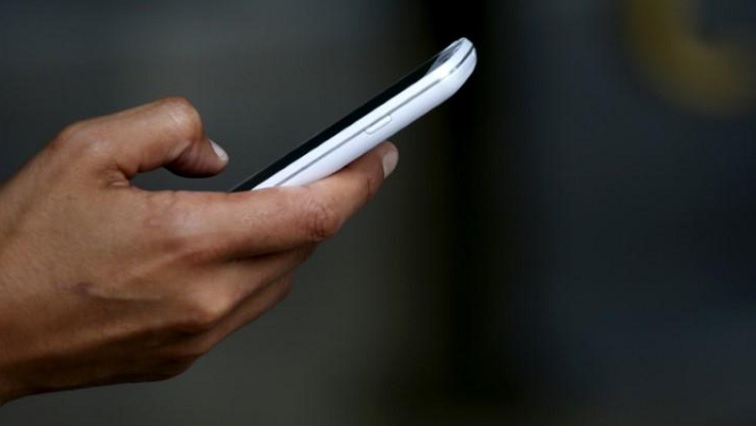Adolescents in sub-Saharan Africa have the highest rate of unplanned pregnancies. Almost half (46%) of these unintended pregnancies among adolescents end in abortion.
Lack of access to family planning services contributes significantly to high rates of unplanned pregnancy and subsequent maternal death among this group. This is due to restrictive health policies, social norms, and health system barriers such as lack of privacy, and confidentiality.
Mobile health interventions can help. Mobile health involves using mobile phones or devices to improve health behaviours and services. Mobile health interventions have become popular in addressing several health issues.
These interventions offer convenience, confidentiality, and privacy. This makes them an appealing way to reach adolescents. They are particularly important when it comes to adolescents accessing sexual and reproductive health services.
There are half a billion mobile phone service subscribers in sub-Saharan Africa. This is almost half of the region’s population. Mobile health offers great opportunities to deliver and monitor health interventions at a much lower cost than traditional face-to-face services. They also offer a wider reach.
Several studies have documented that mobile health interventions work to improve the use of public health services. But limited studies have shown if mobile health interventions improve adolescents’ uptake of sexual and reproductive health services in sub-Saharan Africa.
In a recently published review we evaluated mobile health interventions. The aim was to see if they were effective in improving adolescents’ uptake of sexual and reproductive health services.
The results showed that mobile health interventions were effective. They improved adolescents’ uptake of sexual and reproductive health services across a wide range of services. The evidence was strongest for contraceptive use.
Our findings suggest that mobile health interventions promoting prevention or treatment adherence for HIV for individuals at risk of or living with HIV are acceptable to adolescents. And that they are feasible to deliver in sub-Saharan Africa.
We concluded that there is a need to develop mobile health interventions tailored for adolescents. These, if low cost, have the potential to improve the sexual and reproductive health outcomes in the region.
The problem
One of the biggest barriers to safe reproductive health for young people is that many countries have laws and health policies that prevent them accessing a full range of sexual and reproductive health services. This includes contraceptive methods.
For example, a recent study in five countries in sub-Saharan Africa showed that adolescents are often questioned about their age when seeking contraceptive services. Some healthcare providers insist on receiving approval from parents before administering contraceptives to adolescents.
This practice goes against the World Health Organisation guidelines. These acknowledge adolescents’ access to contraceptives as a human right. They recommend that access to comprehensive contraceptive information and services be provided equally to everyone (including adolescents) voluntarily, free of discrimination, coercion, or violence.
Our research
We focused on studies that were carried out in sub-Saharan Africa using either single or multiple mobile health interventions that support the delivery of sexual and reproductive health information or services. We included 10 studies. Most of them were carried out in East Africa (7), with two in Ghana and one in South Africa.
The systematic review showed that mobile health interventions were effective in improving contraceptive use among adolescents. Also, mobile health interventions improve sexual health knowledge, adherence to HIV treatment, self-reporting of pregnancy, exclusive breastfeeding, delay of resumption of sexual activities for postpartum young women, and increase in health facility delivery among adolescents. However, the evidence supporting this is not strong and additional studies may be required to validate these findings.
We found that the short message service (SMS) was the most used mobile health platform in sub-Saharan Africa. Interactive mobile health interventions had a stronger impact in improving the uptake of sexual and reproductive health services compared to the non-interactive interventions (one-way messaging style). This is not surprising. Interactive mobile health interventions can allow adolescents to acknowledge messages or seek clarification on what they do not understand. It is also possible to test the knowledge of adolescents on some of the sexual and reproductive health issues in the form of quizzes. This implies that future mobile health intervention planners should consider interventions that support interactions.
Surprisingly, most of the studies in our review did not consider if mobile health interventions are cost-effective. This is an important consideration in whether adolescents will use the services or not. Mobile health (or mHealth) interventions may offer convenience to adolescents. But it is key to consider how affordable and sustainable they are to adolescents.
Recommendations
Working together with adolescents to co-develop mobile health interventions is important in meeting their healthcare needs.
Mobile health may be used to bridge healthcare gaps, but they do not erase existing inequalities.
A way forward to increase the chance that mobile health interventions improve the uptake of sexual and reproductive health services among adolescents is to ensure the interventions are interactive, have a sound theoretical underpinning to increase the chances of them being effective and are cost-effective.![]()
Oluwaseyi Dolapo Somefun, Postdoctoral fellow, University of the Western Cape; Franklin Ikechukwu Onukwugha, Post-Doctoral Research Fellow, University of Hull; Lesley Smith, Professor of Women’s Public Health, Institute of Clinical and Applied Health Research, University of Hull, and Monica Magadi, Professor of Social Research and Population Health, University of Hull
This article is republished from The Conversation under a Creative Commons license. Read the original article.


